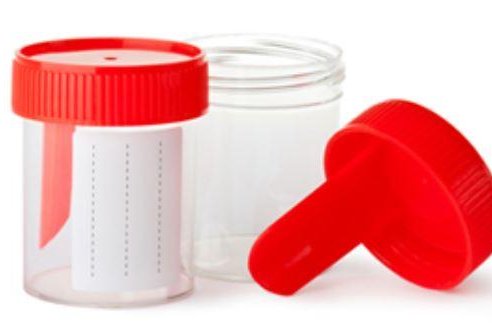Researchers at Johns Hopkins have developed a noninvasive screening test using DNA recovered from cells shed into urine to detect urinary tract cancers. Photo courtesy of National Institutes of Health
March 22 (UPI) -- Researchers at Johns Hopkins have developed a noninvasive screening test for urinary tract cancers by using DNA recovered from cells that are shed into urine.
In a process called UroSEEK, researchers at Johns Hopkins in Baltimore found mutations in 11 genes that can detect bladder or upper tract urothelial cancers, and lead to potentially better outcomes. The findings were published Tuesday in eLife.
The test, when combined with cytology, which is considered the gold standard test used for detection, significantly enhanced early detection for patients. The presence of abnormal numbers of chromosomes could indicate the presence of DNA associated with these cancers.
There were an estimated 79,030 new cases of bladder cancer and 18,540 deaths due to the disease in the United States in 2017, according to the American Cancer Society.
"This is about using the urine to detect the cancer," senior author Dr. George Netto, formerly at The Johns Hopkins University and currently chair of pathology at the University of Alabama-Birmingham said in a press release. "UroSEEK is a method of detection that many people have tried to find that is noninvasive."
UroSEEK is intended to detect cancer in at-risk patients, including those with blood in their urine or people who smoke. Also tested are patients who have already gone through a procedure to treat bladder cancer.
"In almost one-third of patients, bladder cancer detection is late. The cancer has already gotten into the surrounding muscle," Netto said. "Even in those detected at an earlier stage, the tumors frequently recur. Patients are committed to a lifelong surveillance that requires invasive cystoscopy procedures and biopsies and is costly."
A hollow tube called a cystoscope, which is equipped with a lens, is inserted into the urethra and slowly advanced into your bladder.
"Because urine cytology is relatively insensitive for the detection of recurrence, cystoscopies are performed as often as every three months in such patients in the United States," the researchers wrote. "In fact, the cost of managing these patients is in aggregate higher than the cost of managing any other type of cancer, amounting to $3 billion dollars annually."
Researchers wanted to develop a test for the cancers to not only detect them sooner, but to be noninvasive and cheaper. Cytology also doesn't do well detecting low-grade bladder cancer or upper tract urothelial cancers.
For the study, they enrolled 570 patients from Taiwan who were considered at risk for bladder cancer. The researchers opted for participants from Taiwan because of the high rate of urinary cancer there as a result of the medicinal use of herbs containing aristolochic acids. The acids are associated with kidney damage and urinary tract cancer.
UroSEEK was 83 percent positive in those who developed cancer. And when combined with cytology, the sensitivity increased to 95 percent of patients who developed the disease.
"When you combine them, you get better results," said Dr. Nickolas Papadopoulos, a researcher at the Ludwig Center at Johns Hopkins. "Side by side, UroSEEK has better sensitivity. There are some cases when cytology detects when UroSEEK doesn't. Combining them produces the best results."
In upper tract urothelial, 75 percent of the 56 patients received a positive test from UroSEEK, including 79 percent of those with noninvasive tumors. Cytology detected it in only 10 percent of those patients, the researcher report.
The researchers, in their effort to use cancer gene discoveries to develop cancer screening tests, have developed several tests for the disease aside from UroSEEK.
PapSEEK, which was announced Wednesday, is a screening test for endometrial and ovarian cancers gathered from cervical fluid samples during routine Papanicolaou tests. And CancerSEEK, announced in January, is a single blood test that screens for eight cancer types."















